Unit
Years: 1830-1860s

Culture & Community

Economy & Society

Freedom & Equal Rights

Historical Events, Movements, and Figures
Abolitionists as the name implies strive for the complete eradication of practices rather than incremental reforms. In the 18th and 19th century, abolitionists who were advocates for the abolition of slavery took action in a multitude of ways. There were abolitionists that risked their lives by helping those enslaved seek freedom through the Underground Railroad. While others publicly wrote or spoke out against slavery. By identifying key venues in order to issue their calls for action a wider audience could be reached.
There were countless other abolitionists that were unable to commit to such dangerous or public acts of support that were still an important part of the movement. Sharing songs, articles, art and even the act of reading aloud for those who were unable to were efforts that could easily be incorporated into a person’s private life. These types of tactics were not only successful in the abolition movement but have also since been utilized in other social justice causes because of the wider audiences they were able to reach.

The Anti Slavery Alphabet
Philadelphia
Printed for the Anti Slavery Fair 1847
Merrihew&Thompson printers.
To Our Little Readers:
Listen little children, all,
Listen to our earnest call:
You are very young, ‘tis true,
But there’s much that you can do.
Even you can plead with men
That they buy slaves not again.
And those they have may be
Quickly set at liberty.
They may hearken what you say,
Though from us they turn away.
Sometimes when from school you walk,
You can with your playmates talk,
Tell them of the slave child’s fate,
Motherless and desolate.
And you can refuse to take
Candy, sweetmeat, pie or cake,
Saying “no”-unless ‘tis free-
“the slave shall not work for me.”
Thus, dear little children, each
May some useful lesson teach;
Thus each one may help to free
This fair land from slavery.
A is an Abolitionist—
A man who wants to free
The wretched slave—and give to all
An equal liberty.
B is a Brother with a skin
Of somewhat darker hue,
But in our Heavenly Father’s sight,
He is as dear as you.
C is the Cotton-field to which,
This injured brother’s driven,
When as the white man’s slave he toils
From early morn till even.
D is the Driver, cold and stern,
Who follows whip in hand,
To punish those who dare to rest,
Or disobey command.
E is the Eagle soaring high;
An emblem of the free;
But while we chain our brother man,
Our type he cannot be.
F is the heart sick Fugitive,
The slave who runs away
And travels through the dreary night,
But hides himself by day.
G is the Gong, whose rolling sound,
Before the morning light,
Calls up the little sleeping slave,
To labor until night.
H is the Hound his master trained,
And called to scent the track,
Of the unhappy fugitive,
And bring him trembling back.
I is the Infant, from arms
Of its fond mother torn,
And, at a public auction, sold
With horses, cows, and corn.
J is the Jail, upon whose floor
That wretched mother lay,
Until her cruel master came,
And carried her away.
K is the Kidnapper, who stole
That little child and mother—
Shrieking, it clung around her, but
He tore them from each other.
L is the Lash that brutally
He swung around its head,
Threatening that “if it cried again,
He’d whip it till ‘twas dead.”
M is the Merchant of the North,
Who buys what slaves produce—
So they are stolen, whipped and worked,
For his, and for our use.
N is the Negro rambling free
In his far and distant home,
Delighting ‘neath the palm trees’ shade
And cocoa nut to roam.
O is the Orange tree that bloomed
Beside his cabin door,
When white men stole him from his home
To see it never more.
P is the Parent, sorrowing,
And weeping all alone—
The child he loved to lean upon,
His only son, is gone!
Q is the Quarter where the slave
On coarsest food is fed,
And where with toil sorrow worn,
He seeks his wretched bed.
R is the “Rice Swamp, dank and lone,”
Where, weary day by day,
He labors till the fever wastes
His strength and life away.
S is the Sugar, that the slave
Is toiling hard to make,
To put into your pie and tea,
Your candy and your cake.
T is the rank Tobacco plant,
Raised by slave labor too:
A poisonous and nasty thing,
For gentlemen to chew.
U is for Upper Canada,
Where the poor slave has found
Rest after all his wanderings,
For it is British ground!
V is the Vessel in whose dark,
Noisome, and stifling hold,
Hundreds of Africans are packed,
Brought o’er the seas and sold.
W is the Whipping post,
To which the slave is bound,
While on his naked back the lash
Makes many a bleeding wound.
X is for Xerxes famed of yore;
A warrior stern was he
He fought with swords; let truth and love
Our only weapons be.
Y is for Youth—the time for all
Bravely to war with sin;
And think not it can ever be
Too early to begin.
Z is a Zealous man, sincere,
Faithful just and true
And earnest pleader for the slave—
Will you not be so too?
Source: The Anti-Slavery Alphabet printed for the Anti-Slavery Fair in Philadelphia (1847)
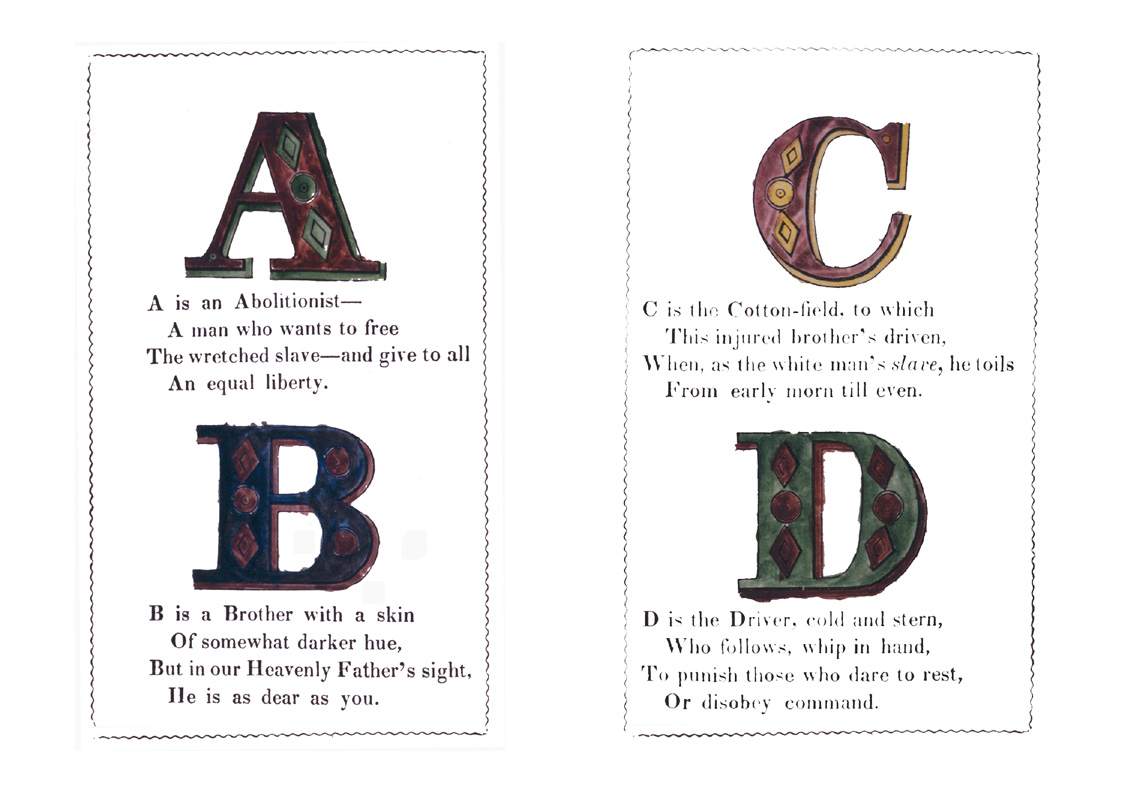
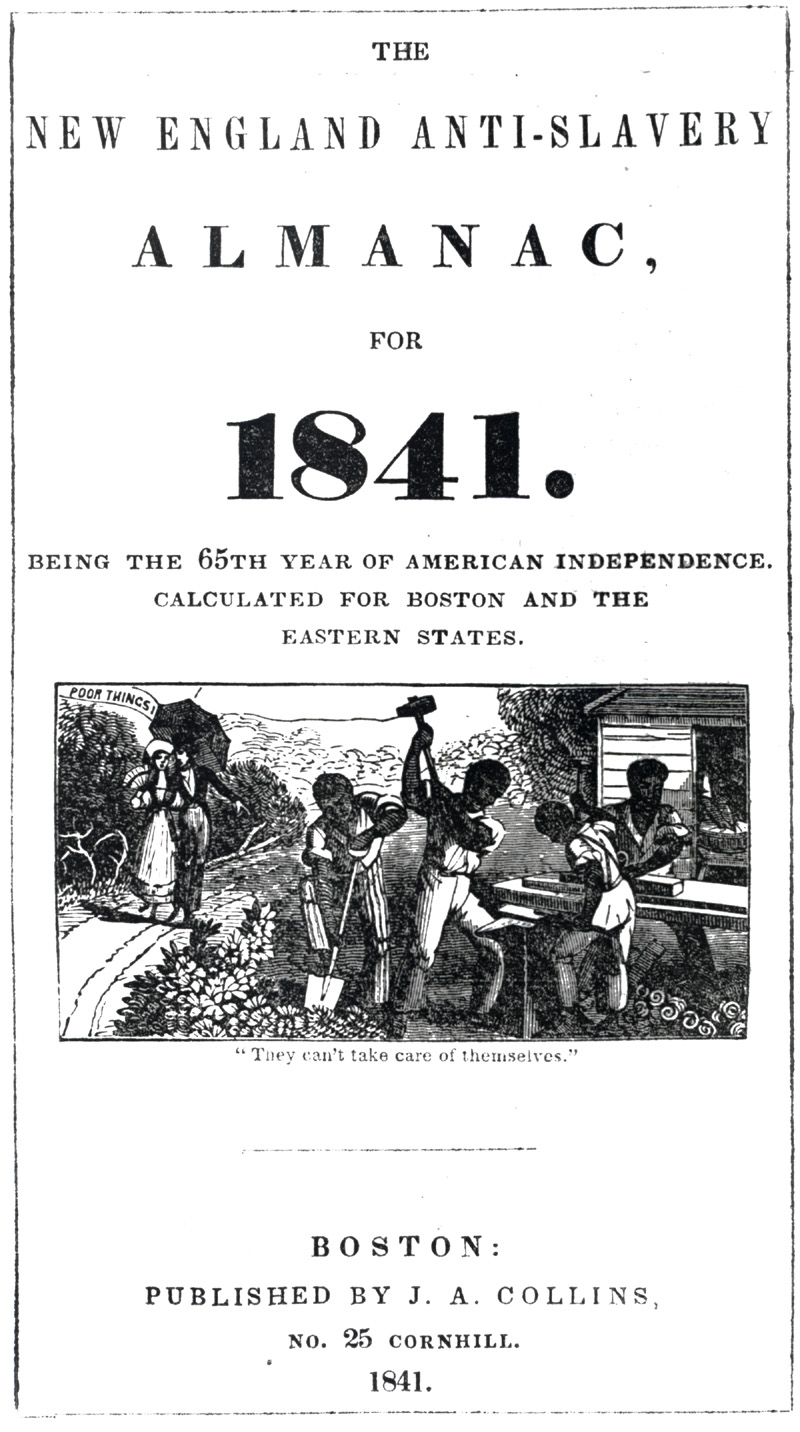

Document 3.11.1: Lyrics for “I am an Abolitionist,” “Spirit of Freemen, Wake,” and “Ye Sons of Freemen”
I am an Abolitionist!
I glory in the name
Through now by Slavery’s minions hiss’d
And covered o’er with shame
It is a spell of light and power—
The watchword of the free:--
Who spurns it in the trial hour,
A craven soul is he!
I am an Abolitionist!
Then urge me not to pause
For joyfully I do enlist
In FREEDOM’S sacred cause
A nobler strife the world ne’er saw,
Th’enslaved to disenthrall;
I am a soldier for the war,
Whatever may befall!
I am an Abolitionist!
Oppression’s deadly foe;
In God’s great strength I will resist,
And lay the monster low;
In God’s great name I do demand,
To all be freedom given,
That peace and joy may fill the land,
And songs go up to Heaven!
I am an Abolitionist!
No threats shall awe my soul,
No perils cause me to desist,
No bribes my nets control;
A freeman shall I live and die,
In sunshine and in shade,
And raise my voice for liberty,
Of naught on earth afraid.
Spirit of Freemen, wake;
No truce with Slavery make,
Thy deadly foe;
In fair disguises dressed,
Too long hast thou caress’d
The serpent in thy breast,
Now lay him low.
Must e’en the press be dumb?
Must truth itself succumb?
And thoughts be mute?
Shall law be set aside,
The right of prayer denied,
Nature and God decried,
And man called brute?
What lover of her fame
Feels not this country’s shame,
In this dark hour?
Where are the patriots now,
Of honest heart and brow,
Who scorn the neck to bow,
To Slavery’s power?
Sons of the Free! We call
On you, in field and hall,
To rise as one;
Your heaven-born rights maintain,
Nor let oppression’s chain
On human limbs remain;--
Speak! And tis done.
Ye sons of freeman wake to sadness
Hark! Hark, what myriads bid you rise;
Three millions of our race in madness
Break out in wails, in bitter cries
Break out in wails, in bitter cries,
Must men whose hearts now bleed with anguish,
Yes, trembling slaves in freedom’s land,
Endure the lash, nor raise a hand?
Must nature ‘neath the whip-cord languish?
Have pity on the slave,
Take courage from God’s word;
Pray on, pray on, all hearts resolved—these captives shall be free.
The fearful storm—it threatens lowering,
Which God in mercy long delays;
Slaves yet may see their masters cowering,
While whole plantations smoke and blaze!
While whole plantations smoke and blaze;
And may we now prevent the ruin,
Ere lawless force with guilty stride,
Shall scatter vengeance far and wide—
With untold crimes their hands imbruing.
Have pity on the slave;
Take courage from God’s word;
Pray on, Pray on, all hearts resolved—these captives shall be free.
With luxury and wealth surrounded,
The southern masters proudly dare,
With thirst of gold and power unbounded,
To mete and vend God’s light and air!
To mete and vend God’s light and air;
Like beasts of burden, slaves are loaded,
Till life’s poor toilsome day is o’er;
While they in vain for right implore;
And shall they longer still be goaded?
Have pity on the slave;
Take courage from God’s word;
Pray on, pray on, all hearts resolved—these captives shall be free.
O liberty! Can man o’er bind thee?
Can overseers quench thy flame?
Can dungeons, bolts, or bars confine thee,
Or threats thy Heaven-born spirit tame?
Or threats thy Heaven-borne spirit tame?
Too long the slave has groaned, bewailing
The power these heartless tyrants wield;
Yet free them not by sword or shield,
For with men’s hearts they’re unavailing;
Have pity on the slave;
Take courage from God’s word;
Pray on, pray on, all hearts resolved—these captives shall be free.
Source: Anti-Slavery Harp: A Collection of Songs for Anti-Slavery Meetings, Compiled by William W. Brown, A Fugitive Slave, Boston: Bela Marsh, 1848.
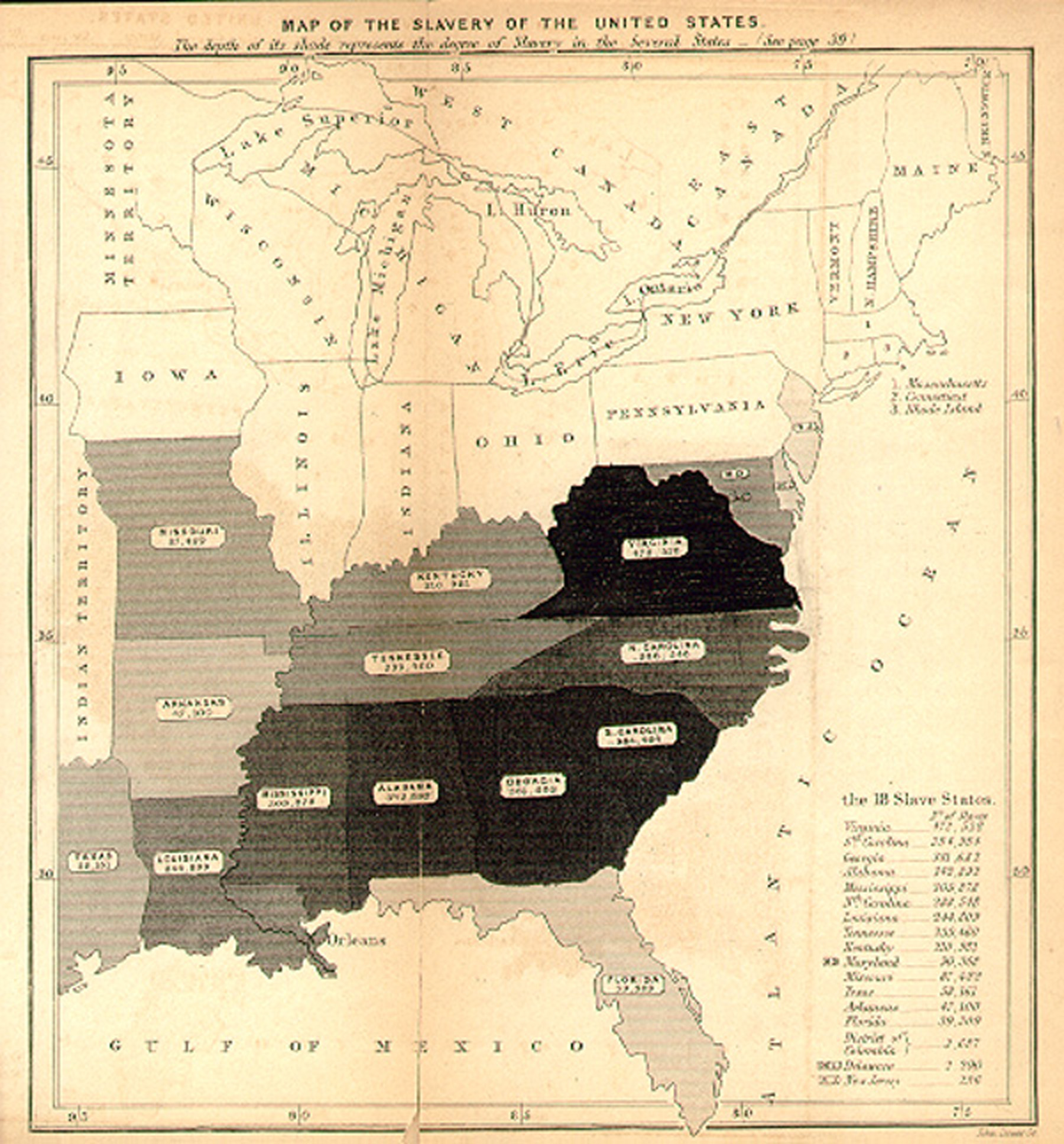

In 1845, the American Anti-Slavery Society published a thirty-six-page pamphlet, which included, among other things, its declaration of sentiments, excerpted here, its platform, a discussion of immediate abolition, and a piece titled, “The Influence of Slavery.”
ADOPTED AT THE FORMATION OF SAID SOCIETY, IN PHILADELPHIA, OF THE 4TH DAY OF DECEMBER, 1833.
The Convention, assembled in the city of Philadelphia, to organize a National Anti-Slavery Society, promptly seize the opportunity to promulgate the following DECLARATION OF SENTIMENTS, as cherished by them, in relation to the enslavement of one sixth portion of the American people.
More than fifty-seven years have elapsed since a band of patriots convened in this place to devise measures for the deliverance of this country from a foreign yoke. The corner-stone upon which they founded the Temple of Freedom was broadly this—"that all men are created equal; that they are endowed by their Creator with certain inalienable rights; that among these are life, LIBERTY, and the pursuit of happiness." At the sound of their trumpet-call, three millions of people rose up as from the sleep of death, and rushed to the strife of blood; deeming it more glorious to die instantly as freemen, than desirable to live one hour as slaves. They were few in number—poor in resources; but the honest conviction that Truth, Justice, and Right were on their side, made them invincible.
We have met together for the achievement of an enterprise without which that of our fathers is incomplete, and which, for its magnitude, solemnity, and probable results upon the destiny of the world, as far transcends theirs as moral truth does physical force.
In purity of motive, in earnestness of zeal, in decision of purpose, in intrepidity of action, in steadfastness of faith, in sincerity of spirit, we would not be inferior to them.
Their principles led them to wage war against their oppressors, and to spill human blood like water, in order to be free. Ours forbid the doing of evil that good may come, and lead us to reject, and to entreat the oppressed to reject, the use of all carnal weapons for deliverance from bondage; relying solely upon those which are spiritual and mighty through God to the pulling down of strongholds.
Their measures were physical resistance—the marshaling in arms—the hostile array—the mortal encounter. Ours shall be such only as the opposition of moral purity to moral corruption—the destruction of error by the potency of truth-—the overthrow of prejudice by the power of love—and the abolition of slavery by the spirit of repentance.
Their grievances, great as they were, were trifling in comparison with the wrongs and sufferings of those for whom we plead. Our fathers were never slaves—never bought and sold like cattle—never shut out from the light of knowledge and religion—never subjected to the lash of brutal taskmasters.
But those for whose emancipation we are striving—constituting, at the present time, at least one sixth part of our countrymen—are recognized by the law, and treated by their fellowbeings, as marketable commodities, as goods and chattels, as brute beasts; are plundered daily of the fruits of their toil, without redress—really enjoying no constitutional nor legal protection from licentious and murderous outrages upon their persons; are ruthlessly torn asunder—the tender babe from the arms of its frantic mother—the heart-broken wife from her weeping husband—at the caprice or pleasure of irresponsible tyrants. For the crime of having a dark complexion, they suffer the pangs of hunger, the infliction of stripes, and the ignominy of brutal servitude. They are kept in heathenish darkness by laws expressly enacted to make their instruction a criminal offense.
These are the prominent circumstances in the condition of more than two millions of our people, the proof of which may be found in thousands of indisputable facts, and in the laws of the slaveholding States.
Hence we maintain, that in view of the civil and religious privileges of this nation, the guilt of its oppression is unequaled by any other on the face of the earth; and, therefore,
That it is bound to repent instantly, to undo the heavy burdens, to break every yoke, and to let the oppressed go free.
We further maintain, that no man has a right to enslave or imbrute his brother—to hold or acknowledge him, for one moment, as a piece of merchandise—to keep back his hire by fraud—or to brutalize his mind by denying him the means of intellectual, social, and moral improvement.
The right to enjoy liberty is inalienable. To invade it is to usurp the prerogative of Jehovah. Every man has a right to his own body—to the products of his own labor—to the protection of law, and to the common advantages of society. It is piracy to buy or steal a native African, and subject him to servitude. Surely the sin is as great to enslave an American as an African.
Therefore, we believe and affirm, That there is no difference, in principle, between the African slave-trade and American slavery.
That every American citizen who retains a human being in involuntary bondage as his property, is, according to Scripture (Ex. xxi. 16), a MAN-STEALER.
That the slaves ought instantly to be set free, and brought under the protection of law.
That if they lived from the time of Pharaoh down to the present period, and had been entailed through successive generations, their right to be free could never have been alienated, but their claims would have constantly risen in solemnity.
That all those laws which are now in force admitting the right of slavery, are therefore before God utterly null and void; being an audacious usurpation of the Divine prerogative, a daring infringement on the law of nature, a base overthrow of the very foundations of the social compact, a complete extinction of all the relations, endearments, and obligations of mankind, and a presumptuous transgression of all the holy commandments; and that, therefore, they ought instantly to be abrogated.
We further believe and affirm—That all persons of color who possess the qualifications which are demanded of others, ought to be admitted forthwith to the enjoyment of the same privileges, and the exercise of the same prerogatives, as others; and that the paths of preferment, of wealth, and of intelligence, should be opened as widely to them as to persons of a white complexion.
We maintain that no compensation should be given to the planters emancipating the slaves—
Because it would be a surrender of the great fundamental principle that man cannot hold property in man;
Because SLAVERY IS A CRIME, AND THEREFORE IS NOT AN ARTICLE TO BE SOLD;
Because the holders of slaves are not the just proprietors of what they claim; freeing the slaves is not depriving them of property, but restoring it to its rightful owners; it is not wronging the master, but righting the slave—restoring him to himself;
Because immediate and general emancipation would only destroy nominal, not real property; it would not amputate a limb or break a bone of the slaves; but, by infusing motives into their breasts, would make them doubly valuable to the masters as free laborers; and
Because, if compensation is to be given at all, it should be given to the outraged and guiltless slaves, and not to those who have plundered and abused them.
We regard as delusive, cruel, and dangerous, any scheme of expatriation which pretends to aid, either directly or indirectly, in the emancipation of the slaves, or to be a substitute for the immediate and total abolition of slavery.
We fully and unanimously recognize the sovereignty of each State to legislate exclusively on the subject of the slavery which is tolerated within its limits; we concede that Congress, under the present national compact, has no right to interfere with any of the Slave States in relation to this momentous subject.
But we maintain that Congress has a right, and is solemnly bound, to suppress the domestic slave-trade between the several States, and to abolish slavery in those portions of our territory which the Constitution has placed under its exclusive jurisdiction.
We also maintain that there are, at the present time, the highest obligations resting upon the people of the free States to remove slavery by moral and political action, as prescribed in the Constitution of the United States. They are now living under a pledge of their tremendous physical force, to fasten the galling fetters of tyranny upon the limbs of millions in the Southern States; they are liable to be called at any moment to suppress a general insurrection of the slaves; they authorize the slave-owner to vote on three-fifths of his slaves as property, and thus enable him to perpetuate his oppression; they support a standing army at the South for its protection; and they seize the slave who has escaped into their territories, and send him back to be tortured by an enraged master or a brutal driver. This relation to slavery is criminal and full of danger: IT MUST BE BROKEN UP.
These are our views and principles—these our designs and measures. With entire confidence in the overruling justice of God, we plant ourselves upon the Declaration of our Independence and the truths of Divine Revelation, as upon the Everlasting Rock.
We shall organize Anti-Slavery Societies, if possible, in every city, town, and village in our land.
We shall send forth agents to lift up the voice of remonstrance, of warning, of entreaty, and rebuke.
We shall circulate, unsparingly and extensively, anti-slavery tracts and periodicals.
We shall enlist the pulpit and the press in the cause of the suffering and the dumb.
We shall aim at a purification of the churches from all participation in the guilt of slavery.
We shall encourage the labor of freemen rather than that of slaves, by giving a preference to their productions; and
We shall spare no exertions nor means to bring the whole nation to speedy repentance.
Our trust for victory is solely in God. We may be personally defeated, but our principles, never. Truth, Justice, Reason, Humanity, must and will gloriously triumph. Already a host is coming up to the help of the Lord against the mighty, and the prospect before us is full of encouragement.
Submitting this DECLARATION to the candid examination of the people of this country, and of the friends of liberty throughout the world, we hereby affix our signatures to it; pledging ourselves that, under the guidance and by the help of Almighty God, we will do all that in us lies, consistently with this Declaration of our principles, to overthrow the most execrable system of slavery that has ever been witnessed upon earth—to deliver our
land from its deadliest curse--to wipe out the foulest stain which rests upon our national escutcheon—and to secure to the colored population of the United States all the rights and privileges which belong to them as men and as Americans—come what may to our persons, our interests, or our reputation—whether we live to witness the triumph of LIBERTY, JUSTICE, and HUMANITY, or perish untimely as martyrs in this great, benevolent, and holy cause.
Done at Philadelphia, the 6th day of December, A. D. 1833.
Source: Platform of the American Anti-Slavery Society,” published in New York, 1855.
Full text can be read on the Library of Congress website http://memory.loc.gov/cgi-bin/ampage

Things for the Abolitionist to do:
Work for the free people of color: See that your schools are open to their children and that they enjoy in every respect all the rights to which as human beings they are entitled.
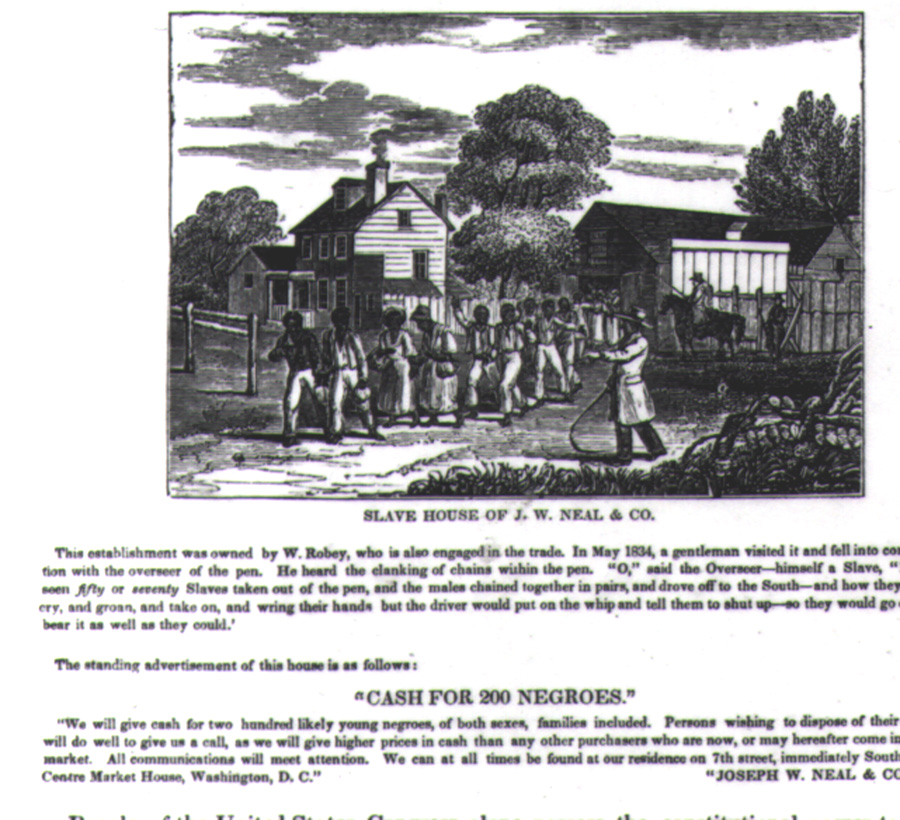
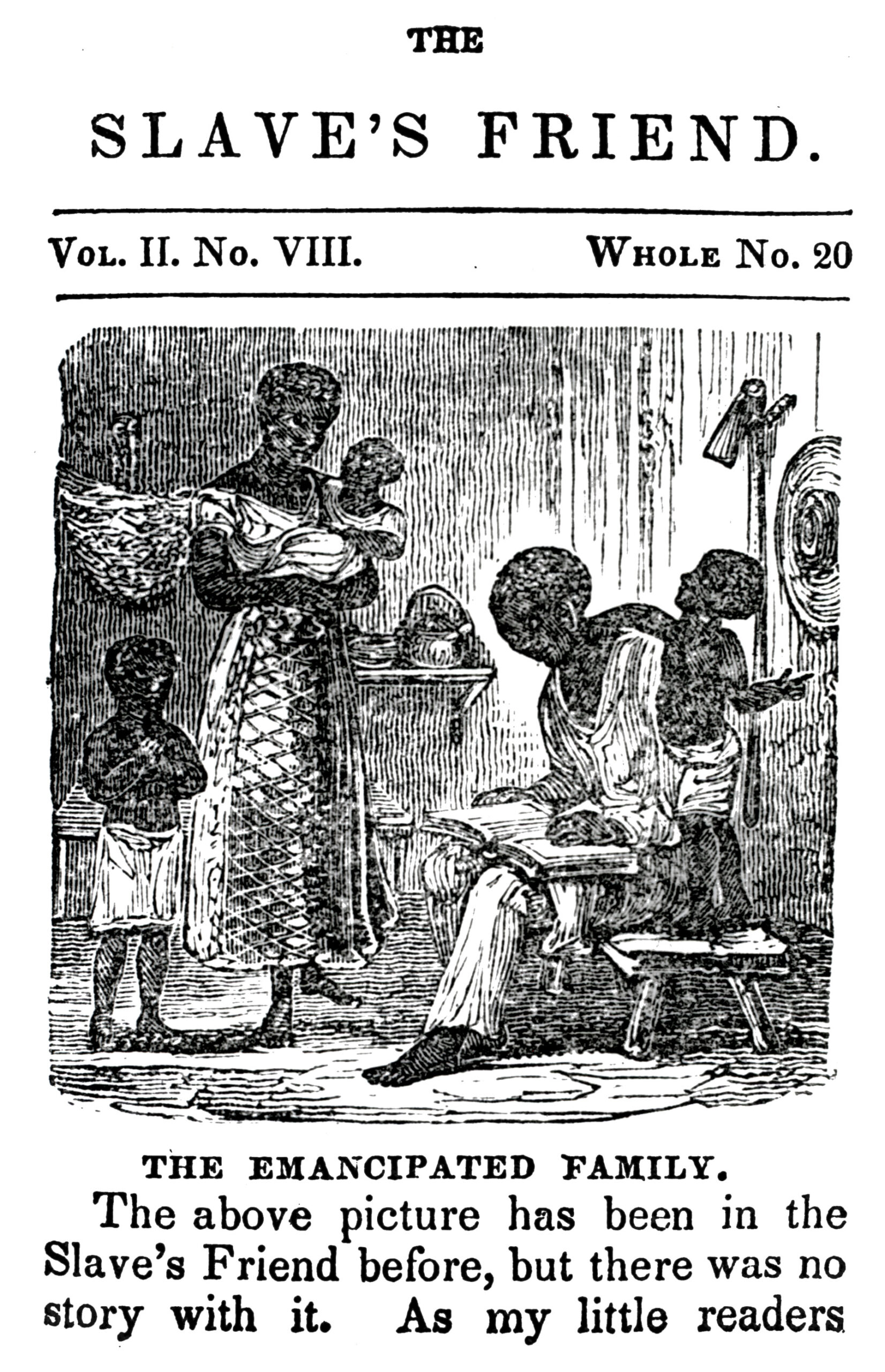
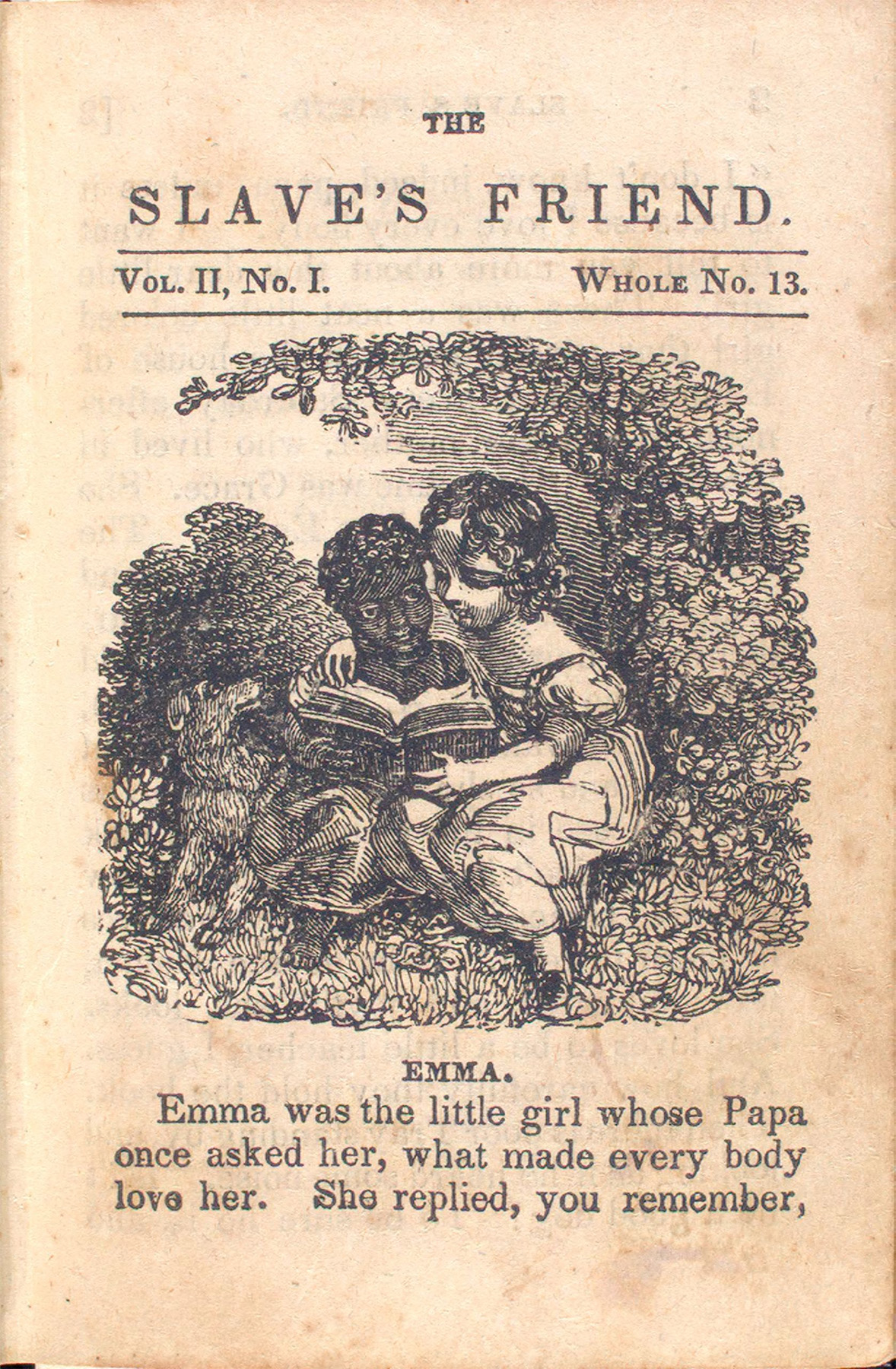
A person who actively campaigned for the abolition of slavery.
A large sheet of paper printed on one side, typically containing a public notice, announcement, or advertisement.
To spread or distribute information, ideas, or knowledge widely to a large audience or population.
A person who has escaped from custody, captivity, or servitude, often to avoid arrest, capture, or punishment.
Fundamental rights that are inherent to all individuals by virtue of their humanity and are considered inviolable, including rights such as life, liberty, and the pursuit of happiness, as articulated in the United States Declaration of Independence. Inalienable rights are often viewed as natural or God-given and cannot be legitimately taken away or transferred by governments or other authorities.
The action of violating or encroaching upon the rights, property, or interests of others, often through unauthorized use, reproduction, or exploitation of intellectual property, such as patents, copyrights, or trademarks.
A violent uprising, rebellion, or revolt against established authority or government, often characterized by armed resistance, civil disobedience, or insurgency, and aimed at overthrowing or challenging existing political, social, or economic systems.
The unjust or cruel exercise of power or authority, often by a dominant group or institution, to systematically exploit, marginalize, or subjugate individuals or groups based on characteristics such as race, ethnicity, gender, religion, or socioeconomic status, resulting in deprivation, discrimination, and harm to the oppressed. Oppression can take various forms, including structural, cultural, and interpersonal oppression, and is often associated with systems of inequality and injustice.
Information, ideas, or messages disseminated with the intent to influence or manipulate public opinion, beliefs, or behavior, often through biased or misleading communication techniques, and aimed at promoting a particular ideology, agenda, or cause, or discrediting opposing viewpoints. Propaganda may be used by governments, political parties, corporations, or other entities to shape perceptions, sway public opinion, or mobilize support for specific goals or policies, and can employ various media channels, including print, broadcast, social media, and advertising.